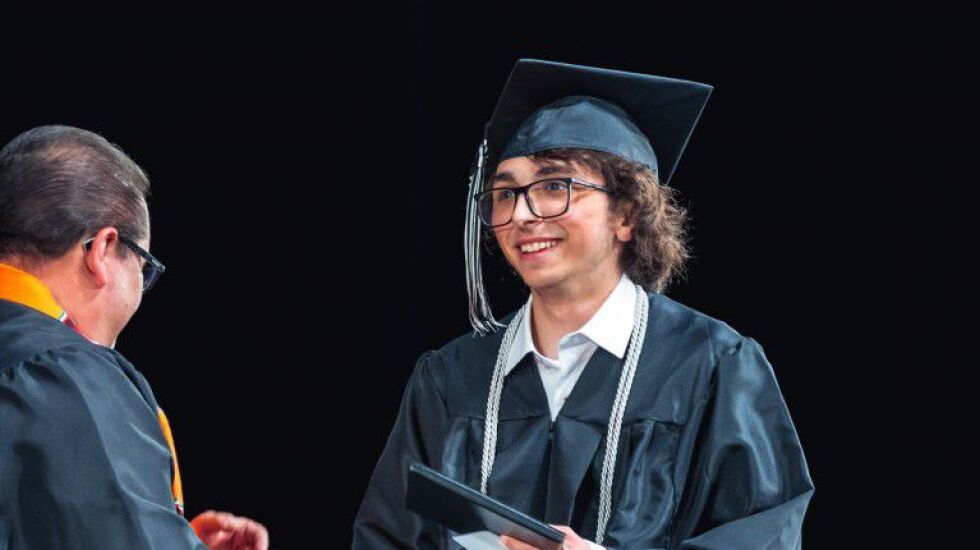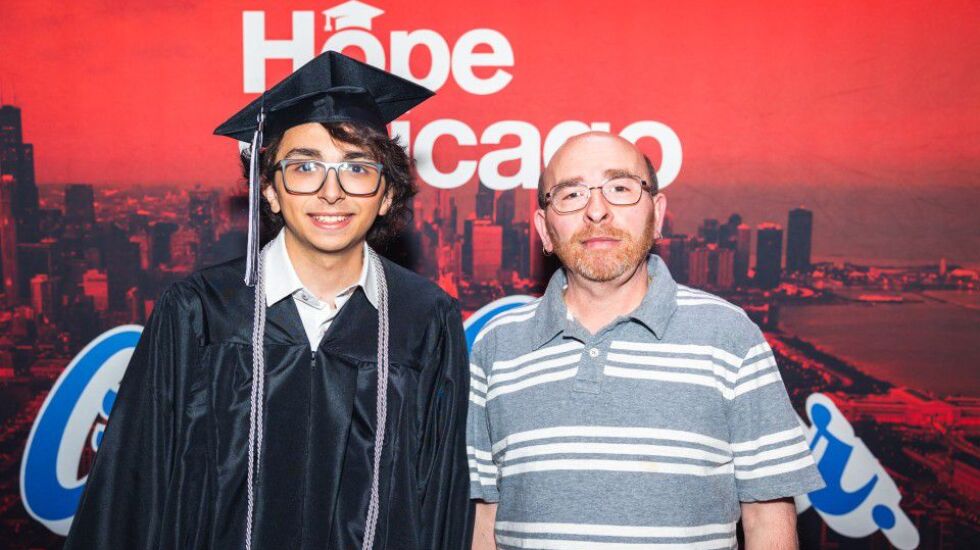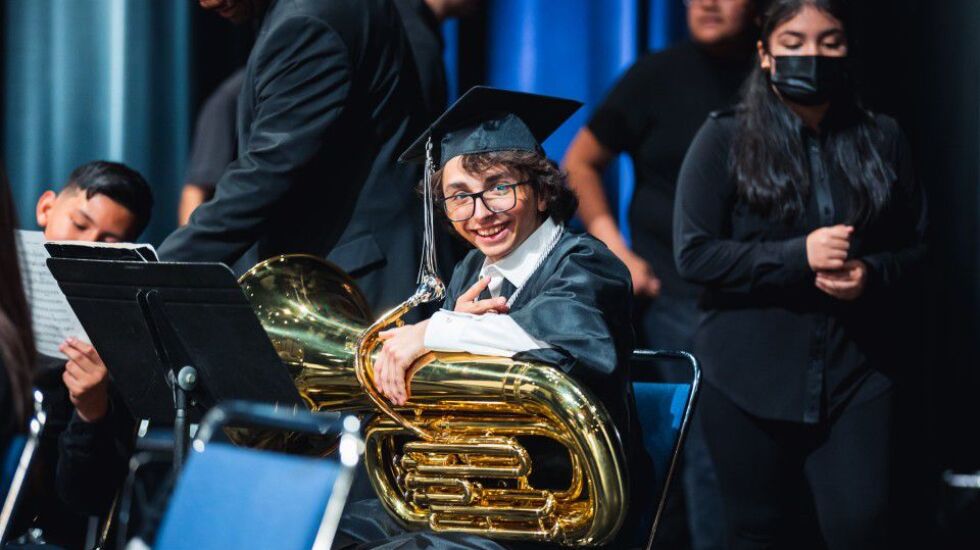
Logan Garcia was a junior at Juarez High School in Chicago’s Pilsen neighborhood when a rumor spread on campus last year: A local nonprofit had offered to pay for students to go to college for free, regardless of grades.
To top it off, one of their parents would be eligible for a full scholarship, as well.
Up to that point, Logan Garcia had been planning to get a job after high school — maybe as a barista or at the airport with his mom. He had watched his sisters struggle with college debt and wanted to find a different path.
But everything changed last spring when the rumor turned out to be true. Philanthropists and entrepreneurs Pete Kadens and Ted Koenig launched Hope Chicago, which partnered with Juarez and four other public high schools to increase college access on the South and West sides.
At least four graduating classes will receive scholarships to one of 23 colleges or training programs in Illinois. That includes four years of tuition, room and board, a new laptop, plus books and fees.
Former Chicago Public Schools CEO Janice Jackson runs the program. She said the scholarship would “close the gap” between financial aid students might get on their own and the full cost of attending college. The goal is to get more Black and Latino students through college and to help uplift their communities. The last thing they want is for families to rack up debt.
“People pretend like there’s some magical place where students go after high school where they make enough money to take care of themselves and family,” Jackson said during a recent speech before the City Club of Chicago.
“We don’t acknowledge the fact that we’re really sending them back to the cycles of poverty that they’ve been raised in,” she said.
Data shows their early efforts are working. One year in, Hope Chicago says college enrollment rates at the five high schools rose about 17 percentage points — up to 74%. And a new study by an economist commissioned by Hope Chicago shows every dollar invested in the program is expected to return more than $4 in social and economic benefits.

New beginnings
For the Garcia family, the Hope scholarship has meant a chance at a fresh start. Father James Garcia wants to go back to school and explore a new career.
“I was not expecting any of this,” he said. “For me to be sitting here doing this, it’s awesome.”
A longtime CTA worker, James Garcia graduated from Juarez High in the late 1980s and dropped out of community college to work and save money. He said he’s leaning toward a job in the heating and air conditioning industry because “you get to work on your own time.”
“I get a second wind or my next chapter,” he said.
James Garcia cheered as his son accepted his high school diploma at the Arie Crown Theater earlier this month. They arrived about two hours early so Logan Garcia could rehearse the tuba with his bandmates.
It was a bittersweet night. The community is still mourning three seniors who died this past school year — along with two younger teens who were fatally shot in December at dismissal. Juarez principal Juan Carlos Ocon, the keynote speaker, encouraged students to think of the opportunities that lie ahead.
“How fitting that a class that has experienced so much hardship is rewarded with a scholarship that can make your dreams of college and career a reality,” he told the audience.
Logan Garcia is one of nearly 400 seniors who graduated from Juarez this year. He plans to live on campus and study international business at Loyola University Chicago this fall.
For now, he’s looking forward to starting a part-time job this summer and hopes to become more independent in college.
“I just want to be able to do things on my own next year without needing support from family members,” he said. “Just being on my own for the first time. That’s what I’m ready for.”
Nereida Moreno covers education for WBEZ.








